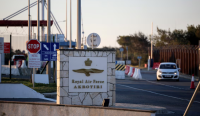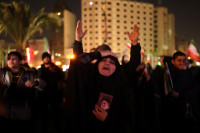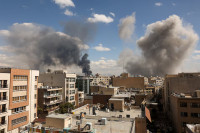World
South Korea’s new president Lee Jae-myung vows economic revival, judgment on martial law
Lee’s decisive win in Tuesday’s snap election signals major change in South Korea after backlash over a failed military rule attempt ended Yoon Suk Yeol’s presidency three years in.
Reuters
South Korea’s new liberal President Lee Jae-myung began his term on Wednesday, vowing to raise the country from the turmoil of a martial law crisis and revive an economy reeling from slowing growth and the threat of global protectionism.
Lee’s decisive victory in Tuesday’s snap election stands to usher in a sea change in Asia’s fourth-largest economy, after backlash against a botched attempt at military rule brought down Yoon Suk Yeol just three years into his troubled presidency.
He faces what could be the most daunting set of challenges for a South Korean leader in nearly three decades, ranging from healing a country deeply scarred by the martial law attempt to tackling unpredictable protectionist moves by the United States, a major trading partner and a security ally.
With 100% of the ballots counted, Lee won 49.42% of the nearly 35 million votes cast while conservative rival Kim Moon-soo took 41.15% in the polls that brought the highest turnout for a presidential election since 1997, according to National Election Commission data.
The 61-year-old former human rights lawyer called Tuesday’s election “judgment day” against Yoon’s martial law and his People Power Party’s failure to stop the ill-fated move.
“The first mission is to decisively overcome insurrection and to ensure there will never be another military coup with guns and swords turned against the people,” Lee said in a victory speech outside parliament.
“We can overcome this temporary difficulty with the combined strength of our people, who have great capabilities,” he said.
Lee was officially confirmed as president by the National Election Commission on Wednesday and immediately assumed the powers of the presidency and commander in chief.
An abbreviated inauguration is planned at parliament at 11 a.m. (0200 GMT), an Interior Ministry official said.
Lee has said he would address urgent economic challenges facing the country on the first day in office with a focus on the cost-of-living concerns affecting middle and low-income families and the struggles of small business owners.
He also faces a deadline set by the White House on negotiating import duties that Washington has blamed for a large trade imbalance between the countries.
‘DEAL WITH TRUMP’
The government under a caretaker acting president had made little progress in trying to assuage crushing tariffs announced by US President Donald Trump’s administration that would hit some of the country’s major industries, including autos and steel.
“President Lee will find himself with little to no time to spare before tackling the most important task of his early presidency: reaching a deal with Trump,” the Washington-based Center for Strategic and International Studies said in an analysis.
US Secretary of State Marco Rubio congratulated Lee on his election win and said the countries “share an ironclad commitment to the Alliance grounded in our Mutual Defense Treaty, shared values, and deep economic ties.”
He also said that the countries were “modernising the Alliance to meet the demands of today’s strategic environment and address new economic challenges.”
The White House said the election of Lee was “free and fair” but the United States remained concerned and opposed to Chinese interference and influence in democracies around the world, according to a White House official.
Lee has expressed more conciliatory plans for ties with China and North Korea, in particular singling out the importance of China as a major trading partner while indicating reluctance to take a firm stance on security tensions in the Taiwan strait.
Still, Lee has pledged to continue Yoon’s engagement with Japan and said the alliance with the United States is the backbone of South Korea’s global diplomacy.
The martial law decree and the six months of ensuing turmoil, which saw three different acting presidents and multiple criminal insurrection trials for Yoon and several top officials, marked a stunning political self-destruction for the former leader and a drag on an economy already slowing growth.




 9.7°C Kathmandu
9.7°C Kathmandu














